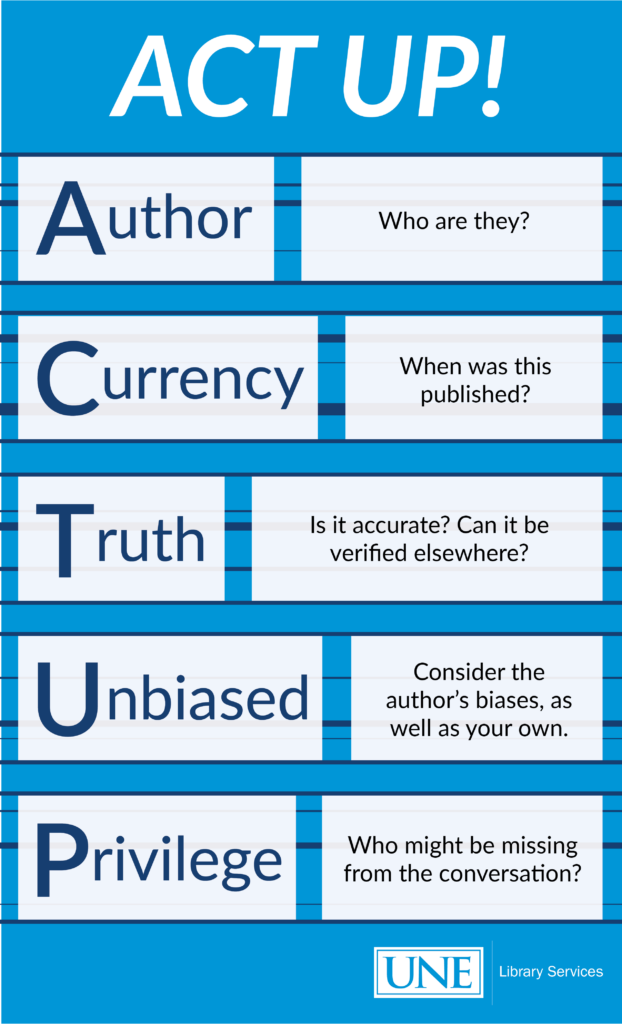Resource Evaluation Criteria
When we consume information, it is important that we evaluate sources. The ability to evaluate the information is a key critical thinking skill. To do so, we offer you the ACT UP method. Use this acronym to evaluate your sources answering as many of these questions as you can.
ACTUP

Author
Who wrote this? What are their credentials? Background information matters.
Currency
When was this written or published? Are you seeking a historical perspective or up-to-date information?
Truth
Is the information accurate? Can you verify the information elsewhere?
Unbiased
No source is truly unbiased; we all have biases. Look for sources which are impartial or which are explicit about their mission, viewpoint or agenda. Is the information presented to sway the audience? Who funded the research or benefits from the outcome? Are you selecting sources which confirm your own biases or seeking a broad range of perspectives on an issue?
Privilege
Check the privilege of the author(s). Who is missing in this conversation?
Why ACT UP?
The ACT UP resource evaluation criteria encourages us to think more broadly about the environments surrounding the production of information resources and to consider elements of systemic oppression which have historically influenced which materials are considered appropriate for academic work. This may mean selecting materials outside of traditional scholarly or popular publication models and careful consideration of who is considered an authority on a topic, on what basis, and who may have been excluded from the conversation due to lack of access.
We thank Dawn Stahura and Simmons College Libraries for developing the ACT UP criteria and for her advocacy for social justice in information literacy.
